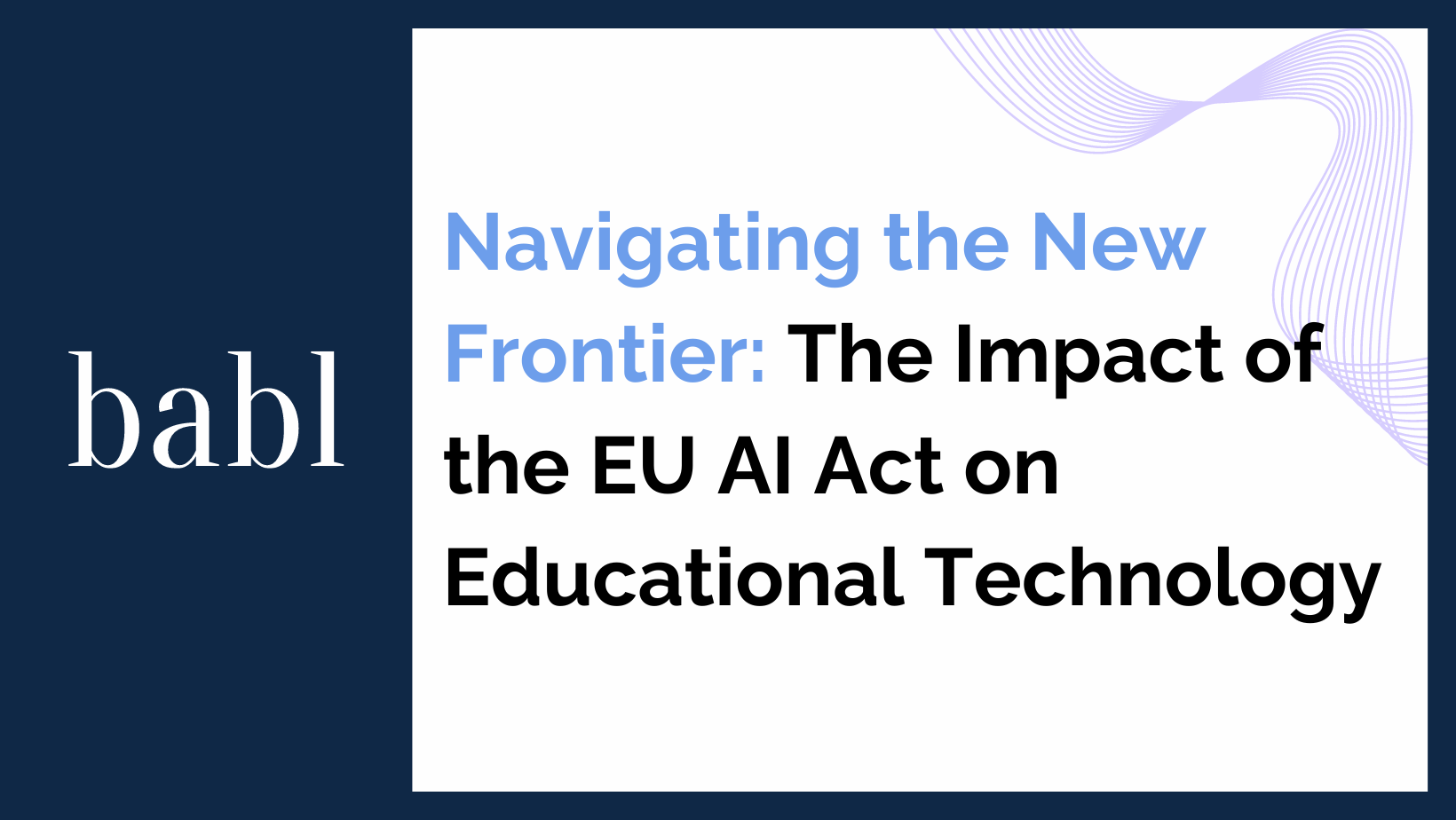The EU AI Act represents a paradigm shift in the regulatory landscape for artificial intelligence applications across Europe, including the educational technology (EdTech) sector. This legislation imposes a comprehensive framework aimed at ensuring AI systems are safe, ethical, and transparent. As educational technologies increasingly incorporate AI to enhance learning experiences, understanding the implications of this act becomes crucial for developers, educators, and policymakers. This blog post delves into the potential impacts of the EU AI Act on the EdTech industry, focusing on compliance requirements, opportunities for innovation, and broader educational implications.
Overview of the EU AI Act
The EU AI Act classifies AI applications based on risk levels—from minimal to unacceptable—with corresponding regulatory demands. High-risk categories, likely to include certain EdTech applications, face stringent obligations around transparency, data governance, and human oversight. The act’s primary goal is to foster trust and safety in AI applications, ensuring they align with fundamental EU rights and values.
Compliance Challenges for EdTech Providers
- Risk Assessment and Classification: EdTech companies must evaluate whether their AI tools fall under the high-risk category, which includes AI systems that significantly impact educational outcomes or handle sensitive data. For example, AI-driven platforms that adapt learning based on student performance might require compliance with high-risk protocols due to their profound impact on educational trajectories.
- Data Governance: High-risk AI systems demand rigorous data management practices to ensure accuracy, privacy, and security. This is particularly pertinent in EdTech, where children’s data protection is critical. Providers must implement mechanisms for secure data processing and obtain clear, informed consent from users or their guardians.
- Transparency and Explainability: The AI Act mandates that high-risk AI applications be transparent and their operations understandable to users. In education, this means algorithms used for functions like grading or adaptive learning must be accessible and explicable to educators and students alike, ensuring that users can understand and trust the AI’s decision-making process.
- Human Oversight: The act requires that decisions made by high-risk AI applications be subject to human review. In educational settings, this implies that AI-generated assessments or recommendations should be modifiable by educators, maintaining human control over critical educational decisions.
Opportunities for Innovation
- Enhancing Personalized Learning: Despite its regulatory nature, the EU AI Act encourages the development of innovative, secure AI applications. EdTech companies can harness this aspect to build advanced AI-driven personalized learning experiences that comply with EU standards, thereby enhancing educational outcomes while ensuring safety and trustworthiness.
- Boosting Student Engagement and Retention: AI has the capability to analyze vast amounts of student interaction data to identify patterns and predict risks such as student disengagement. This allows for timely interventions tailored to individual educational needs, potentially improving both student retention and success rates.
- Accessibility Improvements: AI can significantly enhance accessibility in education for students with disabilities. The act’s focus on ethical AI use encourages the development of tools that support diverse learning needs, promoting inclusivity in the educational process.
Broader Educational Implications
- Ethical Considerations: The EU AI Act places a strong emphasis on ethical AI usage, which aligns with core educational values such as fairness and equity. It is crucial for EdTech providers to ensure their AI tools do not inadvertently perpetuate biases or foster inequalities within educational environments.
- Enhancing Educator Roles: The legislation envisions AI as augmenting rather than replacing human educators. This ensures that teachers remain integral to the educational process, leveraging AI as a powerful aid to enhance their teaching effectiveness and efficiency.
- Fostering an Ecosystem of Trust: By adhering to the EU AI Act, EdTech firms contribute to a trusted environment where educational institutions, parents, and students feel confident that AI tools are being used responsibly and with respect for privacy and ethical standards.
The EU AI Act ushers in a new era of AI governance that will significantly influence the EdTech sector. While it introduces several compliance challenges, it also opens doors to innovation and can enhance the quality and fairness of education. For EdTech companies, aligning with these regulations is not just about legal compliance but also about leveraging opportunities to foster trust and innovate responsibly. As the industry continues to evolve, those who embrace the act’s principles are likely to lead in developing AI-driven educational solutions that are both effective and ethically sound.
Need Help?
If you want to have a competitive edge when it comes to the EU AI Act, or any other regulation or law, don’t hesitate to reach out to BABL AI. Their team of Audit Experts can provide valuable insights on implementing AI.





